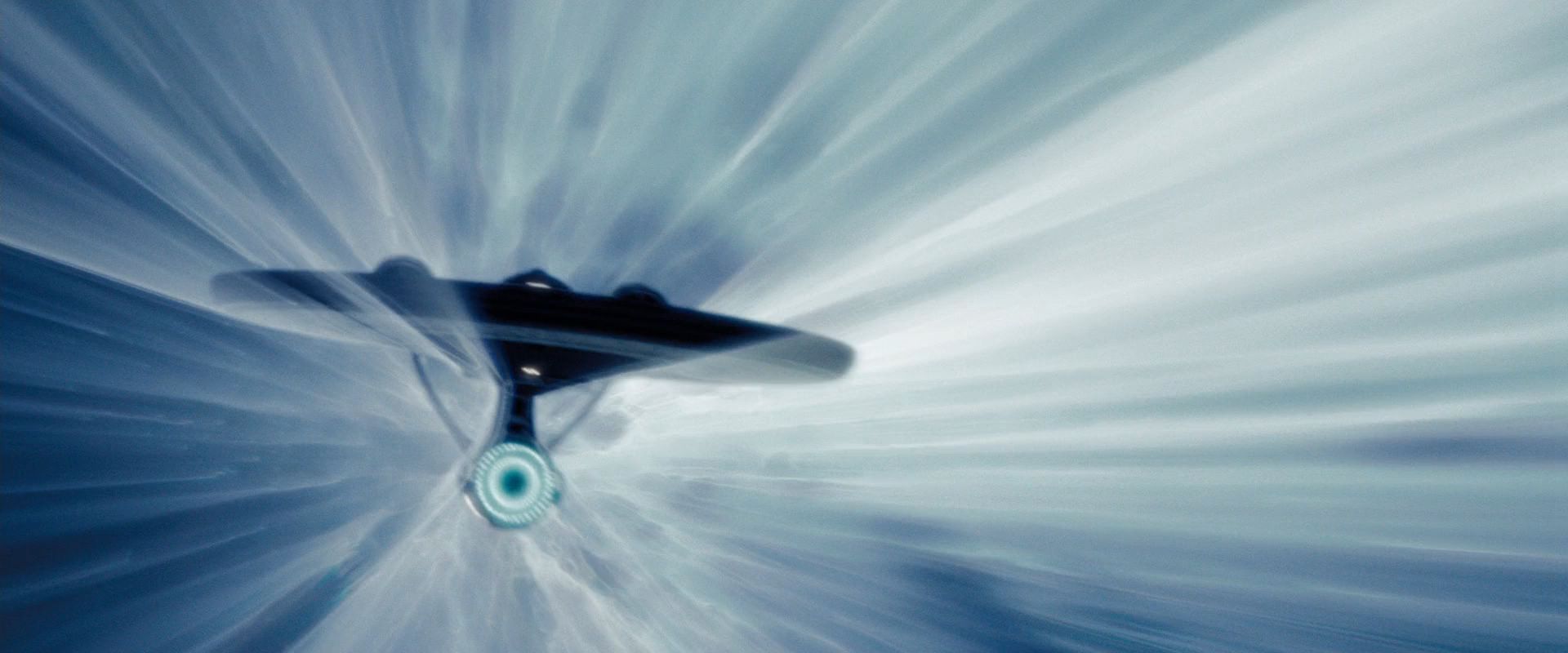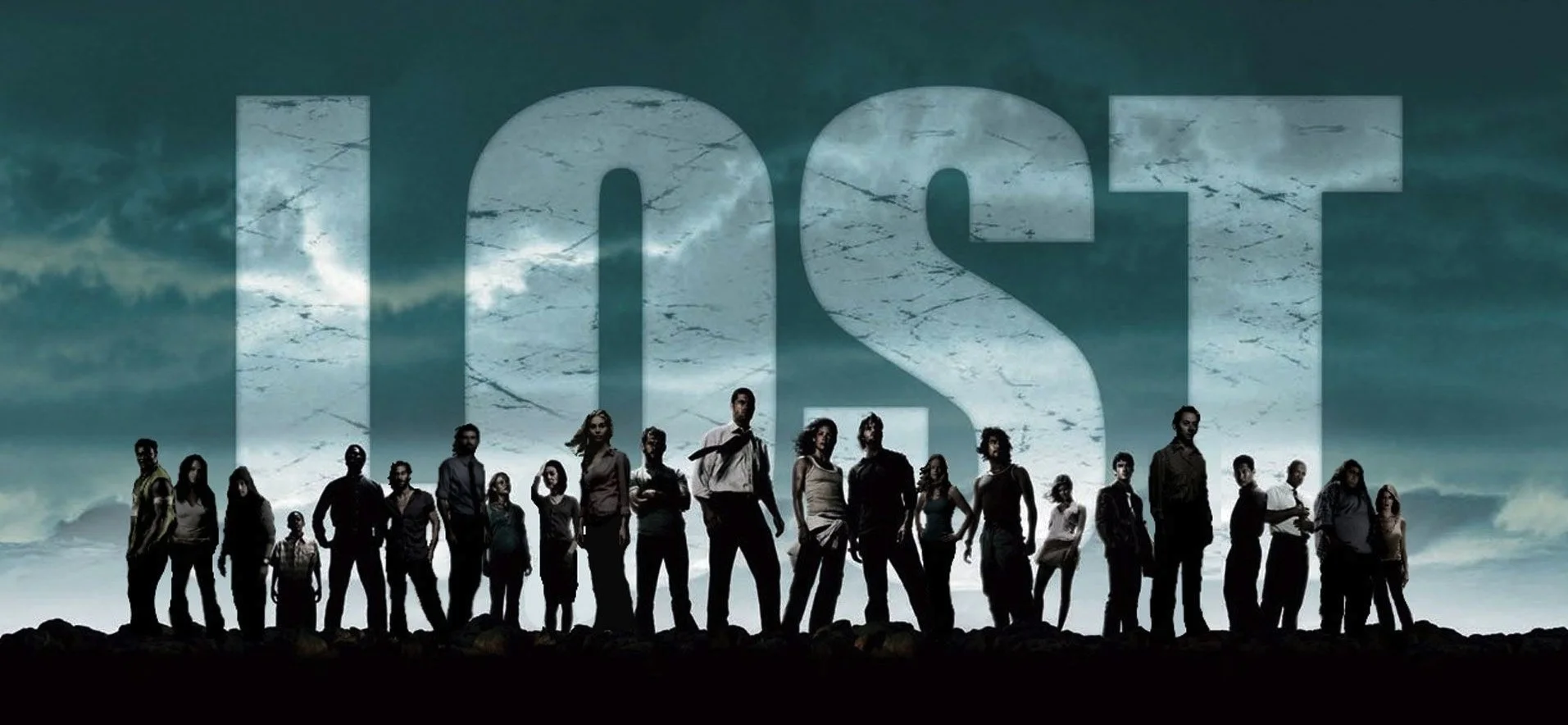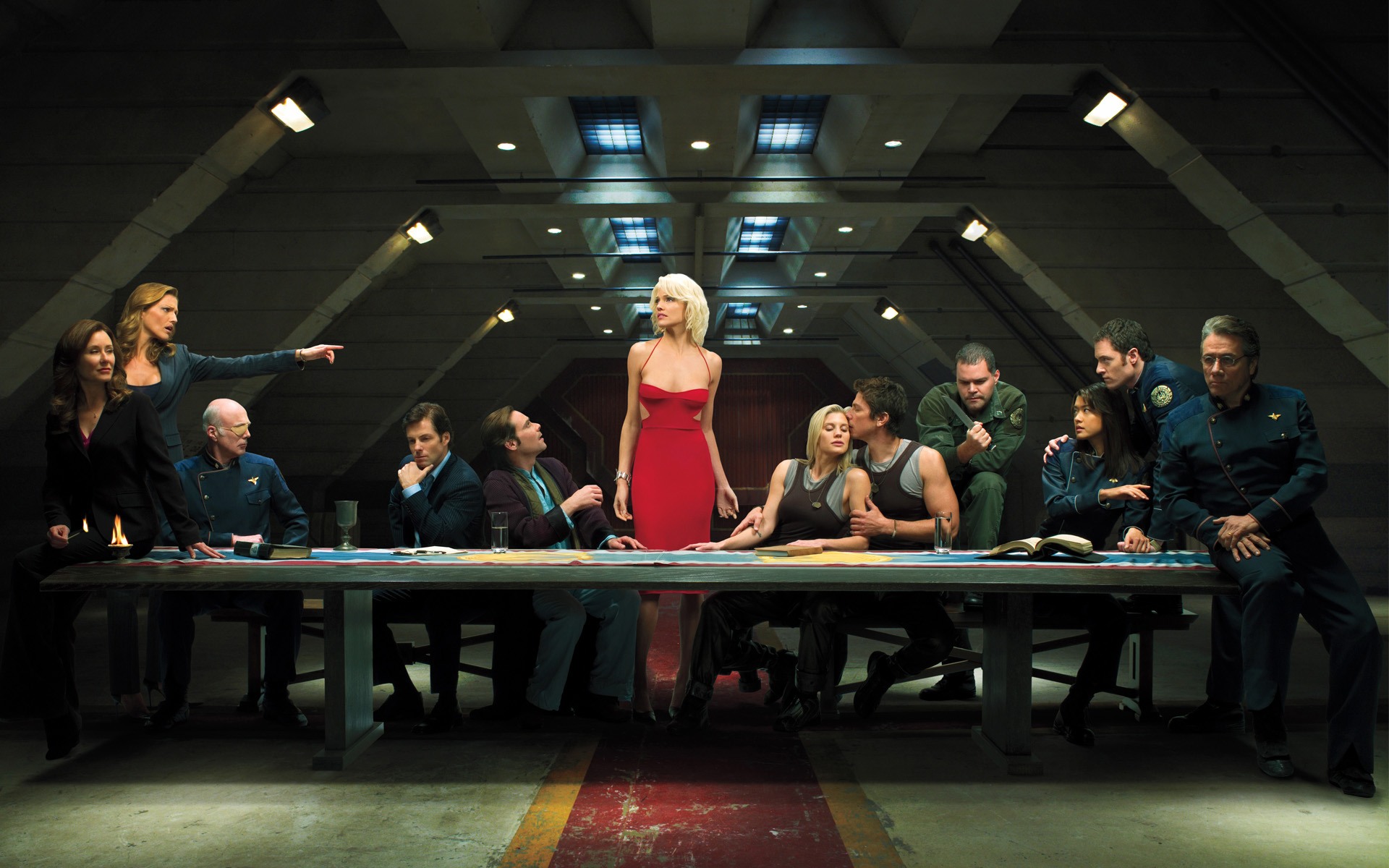Just a couple of psychologists celebrating science fiction and music at the Experience Music Project and Science Fiction Museum.
A few days ago I wrote about how music changes the way we act, think, and feel. What I didn't mention is how much I'm obsessed with film and TV scores - they suck me in, focus my mind, and make the rest of the world disappear.
While some write off Hollywood composers as "sell outs", the genre is essentially the same as the romantic era of music (you know, the time period that gave us Beethoven's "Symphony No. 9", Strauss's "Blue Danube", and Holst's "Mars") - both use music to tell a story that produces very specific feelings.
Science fiction is home to some of the best film and TV scores. To celebrate the musical contributions of science fiction, I'm starting a series highlighting the 10 best scifi scores of each decade, beginning with the 2000s (2001 - 2010). Check back for updates or save this link to view the whole series.
Here we go...
#10: Wall-E, Thomas Newman
Since Wall-E rarely speaks, the film relies on Thomas Newman's score to communicate how the robot is thinking and feeling. This is done effortlessly. I also love how fun the score is. While things start seriously with "2815 A.D.", there's goofiness to "Wall-E", a sense of wonder to "Bubble Wrap", and playfulness to "First Date". Listen to samples of these tracks below.
If you like this score, check out Newman's scores to Skyfall, Finding Nemo, and American Beauty.
#9: District 9, Clinton Shorter
It was great to see a science fiction film that doesn't revolve around the United States. That's also what I enjoyed about Clinton Shorter's score to District 9 - South African vocals are integrated throughout resulting in a unique sound. Highlights include “District 9”, “Exosuit”, and “Heading Home”.
I listen to District 9 during my morning subway commute. It gets me fired up to take on the hoards of New York City pedestrians.
#8: Moon, Clint Mansell
Moon is one of the best science fiction films that no one has seen. The score is clean and delicate. It makes you feel the loneliness of being stuck on the moon. Just listen to "Welcome to Lunar Industries", "Memories (Someone We'll Never Know)", and "The Nursery" to get an idea of what I mean.
To hear more from Mansell, try his scores to Requiem for a Dream, The Fountain, The Wrestler, and Black Swan.
#7: Tron: Legacy, Daft Punk
Tron: Legacy was a letdown, but the score exceeded all of my expectations. Daft Punk created a true synthesis of electronic and orchestral music that has yet to be replicated. Standouts include "The Game Has Changed", “Fall”, and “TRON Legacy (End Titles)”.
I listen to this album anytime I need an extra boost of motivation - at the gym, during chores, and when I'm behind on paperwork. Tron: Legacy just makes me want to get things done.
#6: Eternal Sunshine of the Spotless Mind, Jon Brion
Like Moon, Eternal Sunshine's score is razor sharp. Here, the focus is on a man desperately trying to hold on to fading memories and the music highlights the fuzziness of that process. Favorites include "Peer Pressure", "Row", and "Elephant parade".
I use this score for short bursts of contemplation, usually when I'm planning something new.
#5. The Dark Knight, Hans Zimmer & James Newton Howard
Both Hans Zimmer and James Newton Howard did the right thing when Christopher Nolan rebooted Batman - instead of competing with Danny Elfman's heroic original theme, they created a murkier score. While elements of Batman’s theme were teased in Batman Begins, they weren't fully fleshed out until The Dark Knight. For a sample, listen to “A Watchful Guardian” (Batman), “Why So Serious” (Joker), and “Harvey Two-Face” (Harvey Dent).
While The Dark Knight Rises's score has some nice moments (I love the chaos in "Gotham's Reckoning"), it lacks the subtly of the first two movies (probably because Howard wasn't involved). The Dark Knight remains the best film and score of the trilogy.
#4: Children of Men, John Tavener
Alfonso Cuarón's Children of Men has been compared to Ridley Scott’s Blade Runner. The score is more similar to 2001: A Space Odyssey, both in style and gravitas. Unlike 2001, John Tavener composed original music for the film in addition to using existing orchestral music. "Fragments of a Prayer, "Eternity's Sunrise", and "Mother of God, Here I Stand (For String Orchestra)" are all powerful examples of the film’s style.
Like the movie, the score feels fresh and modern. Spock's theme is reflective and tragic ("Head To Heart Conversation") while Kirk's is searching for a purpose ("Hella Bar Talk"). The best part is Giacchino's take on the original 1966 Star Trek theme ("End Credits") - it honors the past while boldly moving the franchise forward.
When JJ Abrams picks a composer for Star Wars Episode VII, I hope he selects Giacchino – I’d love to see what he can do with that universe.
#2: LOST, Michael Giacchino
This decade witnessed the rise of Giacchino. Along with Star Trek, he composed Alias, The Incredibles, Ratatouille, Mission: Impossible 3, Mission Impossible: Ghost Protocol, Super 8, and Up (for which he won an Oscar). He also did the music for Disneyland’s revamped Space Mountain and Star Tours rides and a bunch of video games. His most creative work remains the score to TV’s LOST. Throughout the series, Giacchino expresses complex emotion with a few simple notes and uses silence as a way of building or releasing tension. He even used pieces of an airplane fuselage to create some of the show’s strange sounds. Below are some of the best moments from LOST's six seasons including "Oceanic 815", "Hurley's Handouts", "Claire-A Culpa", "The Constant", "Sawyer Jones and the Temple of Boom", "The Tangled Web", and "Closure".
To keep Battlestar Galactica from sounding like just another space opera, McCreary used non-traditional orchestral instruments like the duduk, taiko drums, an erhu, sitars, gamelans, and bagpipes. Their synthesis results in a score that transcends all genres and is just really beautiful music.
I could go on and on about McCreary's score, but I'll just touch on some of my favorite themes of the series. The Adama theme ("Wander My Friends") highlights the role of family in the show. "Roslin and Adama" is rich and soothing while "The Sense of Six" is cold and unnerving. "Prelude to War" combines strings and percussion to create a dramatic standoff. "Heeding The Call" sets up the biggest reveal of the show and "Diaspora Oratorio" takes the series into its final act.
If you haven't heard of Battlestar Galactica, go to Netflix right now and watch the pilot. It’s that good. You won't be disappointed.
Honorable Mentions
Inception, X2, The Island, Firefly, and Halo (yes, the video game) came close to making the list, but beyond the signature themes the scores weren't that memorable.
Notable Exceptions
Nothing from the "Marvel Cinematic Universe" (Iron Man 1 & 2, The Incredible Hulk, Thor, Captain America: The First Avenger, The Avengers) came close to reaching the top 10. None of the music from these movies is memorable.
We didn't get anything fresh from John Williams. I liked his Minority Report theme, but the Star Wars prequels, Indiana Jones and the Kingdom of the Crystal Skull, and Artificial Intelligence scores sounded A LOT like his previous work. Similarly, James Horner's score to Avatar reminded me of James Horner's score to Titanic.
The 2000s saw the passing of Jerry Goldsmith, one of the greatest science fiction composers (Planet of the Apes, Star Trek: The Motion Picture, Alien). I really miss hearing his music.
That's it for now. Let me know what you think. What did I get right or wrong? What would you put on your list? And don't forget to come back for my list of the top scifi scores from the 1990s.











